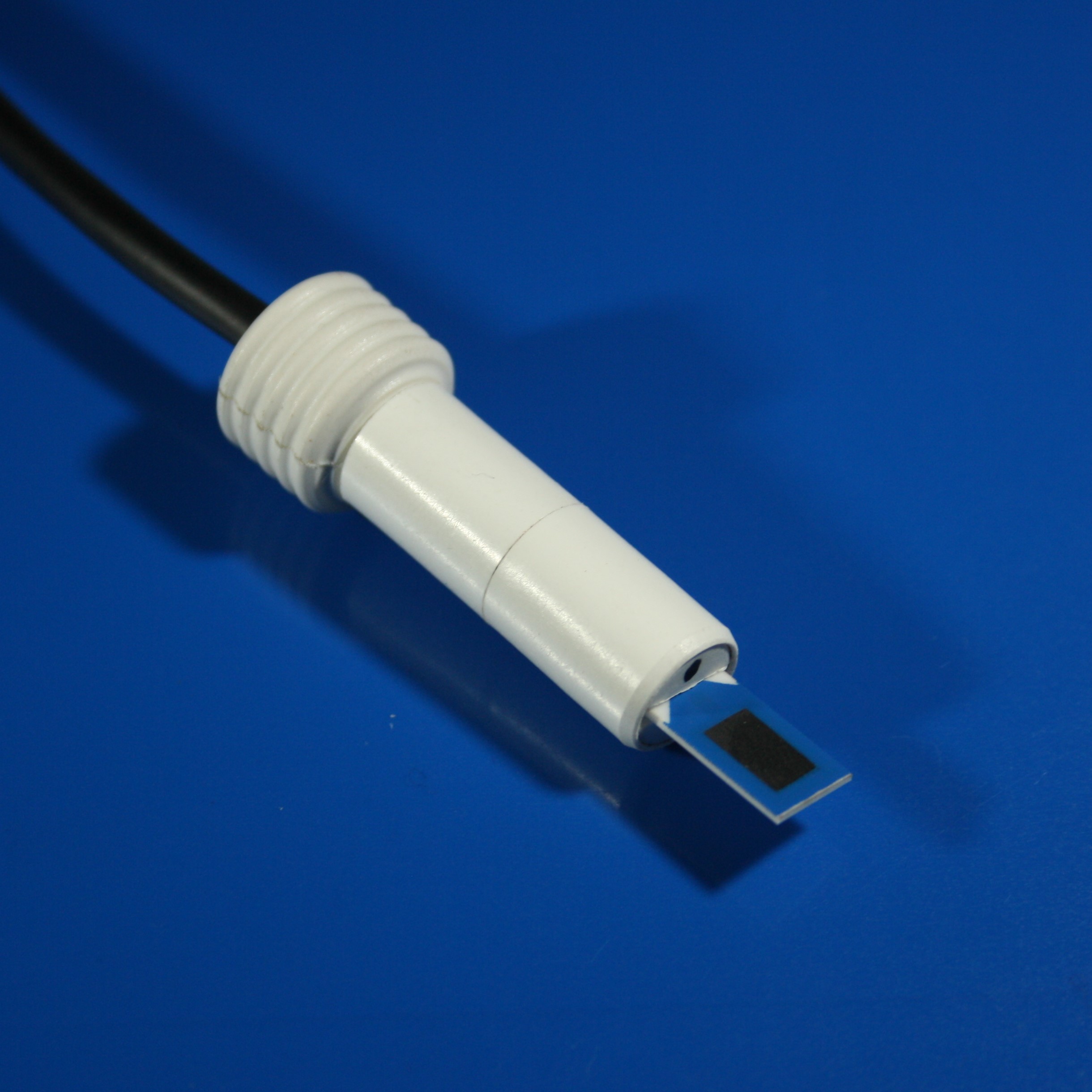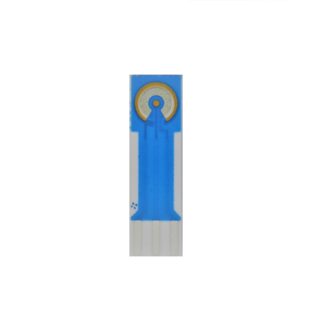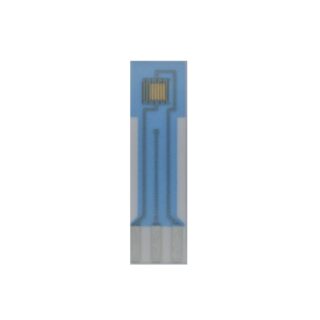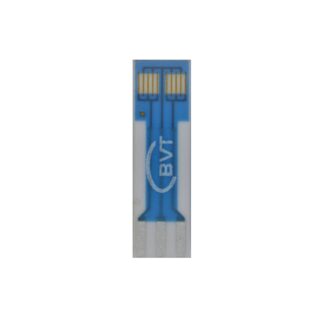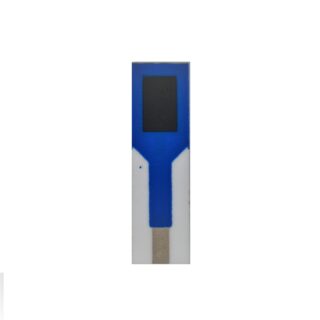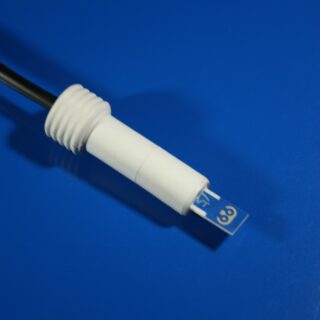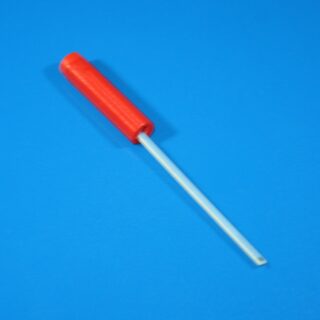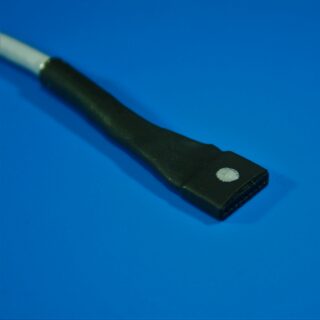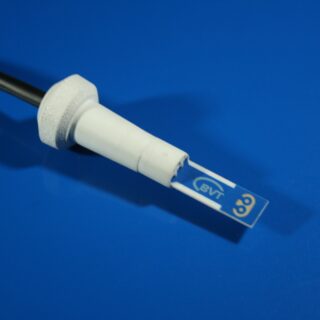Category
- Custom made glass products
- CUSTOMER SERVICES
- NEW PRODUCTS
- Sensors and electrodes
- Custom made and Modified Screen Printed Electrodes
- Stirrers
- Cables and connectors
- Cell
- Potentiostats
- Manual Screen Printer
- Minithermostat
- Pumps
- Accessories
- Kits & Sets
- Discounted SPEs (at a reduced price with visual defects/inconsistancies, but fully functional)
KA4.* Connector for Electrochemical Sensors
The connector enables the use of the electrochemical sensor/biosensor based on the substrates AC1, AC4, CC1, CC2 and TS1 in classical electrochemical arrangement. This connector has 6 contacts. Three contacts on the front side serve as contacts for 3-electrode system. Three contacts on the back side main purpose is to be used with AC1 (H, T) sensors that possess heating and temperature measuring termistor.
You may also like…
-
AC1 Electrochemical sensor
Read moreBasic amperometric low cost three-electrode sensor with patented structure made by thick film technology.
Dimensions: 25.4 x 7.26 x 0.63 mm
WE material: Au/Pt, Au, Pt, Ag, C
The sensor is formed on a corundum ceramic base. On to this surface the working, the reference and the auxiliary electrodes are applied. The working and the auxiliary electrodes are made of variety of materials. At the end of the sensor there is a contacting field which is connected with the active part by the silver conducting paths which are covered by a dielectric protection layer.
A bio-chemically active substance can be immobilised on the working electrode of the sensor to create a biosensor. All sensors can be equipped with heating and temperature sensing elements. Thermistor (must be calibrated) or Pt 1000 (the response corresponds to the ISO standard) is used as the temperature sensor.
We also offer:
- working electrode made of polished gold (WE diameter 1 or 2 mm) – sensor type: AC1P.W*.R*, with homogenous surface with roughness less than 1 µm
- working electrode made of a material of guaranteed purity of up to 99.99 % (WE diameter 2 mm) – sensor type: AC1.GP
We also offer activated graphite sensors on customer request.
See activation example below:
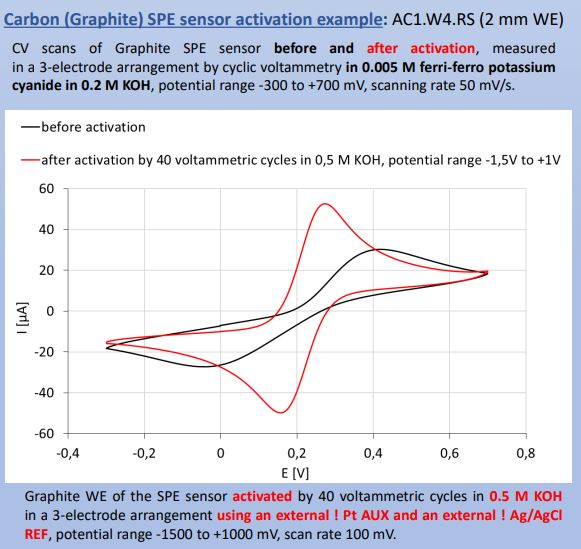
* Have a look at product cathegory Discounted SPEs – which include offer of Screen Printed Electrodes (SPEs) at a reduced Price from our AC1 line of Sensors. They are fully functional, but with visual defects or inconsistancies.
– ideal for use by students to gain handling experience and knowledge on SPEs and their uses
– ideal for initial experiments in research -
CC1 Electrochemical sensor
Read moreA conductivity sensor made by thick film technology with interdigitated structure of electrodes
Dimensions: 25.4 x 7.26 x 0.63 mm
WE material: Au/Pt, Au, Pt, Ag, C
The sensor is formed on a corundum ceramic base. Onto this surface two interdigitated structures of electrodes are applied. The electrodes are made of Platinum-Gold alloy in standard product CC1.WS. At the end of the sensor there is a contact which is connected with the active part by the silver conducting path which is covered by a dielectric protection layer. A bio-chemically active substance can be immobilised on the working electrode of the sensor.
-
CC2 Electrochemical sensor
Read moreA conductivity sensor with two active parts made by thick film technology with interdigitated structure of electrodes
Dimensions: 25.4 x 7.26 x 0.63 mm
WE material: Au/Pt, Au, Pt, Ag, C
The sensor is formed on a corundum ceramic base. Onto this surface two interdigitated structures of electrodes are applied. The electrodes are made of Platinum-Gold alloy in standard product CC2.WS. At the end of the sensor there is a contact which is connected with the active part by the silver conducting path which is covered by a dielectric protection layer. A bio-chemically active substance can be put on the electrodes, one interdigitated structure, the second structure is reference.
-
AC4 Electrochemical sensor
Read moreAmperometric single working electrode sensor with a extremely big working electrode made by thick film technology
Dimensions: 25.4 x 7.26 x 0.63 mm
WE material: Au/Pt, Au, Pt, Ag, C
The sensor is formed on a corundum ceramic base. On to this surface working electrode is applied. The working electrode is made of variety of materials. At the end of the sensor there is a contact which is connected with the active part by the silver conducting path which is covered by a dielectric protection layer.

